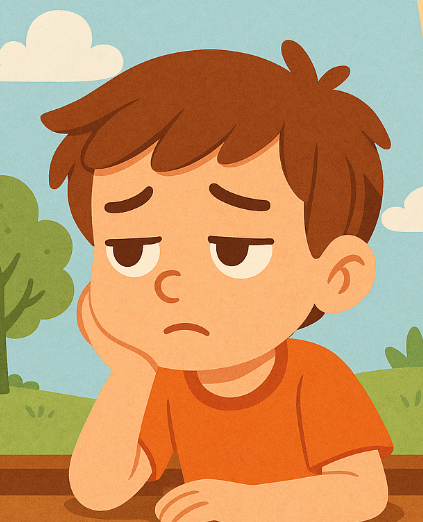
Understanding and Managing Boredom in Children During the Summer
Boredom in children is a common yet complex experience, especially during the summer months when school routines pause. While it may seem like an idle time, boredom offers unique opportunities for growth, learning, and self-discovery. Recent research in educational psychology and child development emphasizes the importance of helping children not only manage boredom with parental support but also develop the skills to self-regulate and engage in constructive activities.
In this post, we examine the concept of boredom from a developmental perspective, review its potential effects, and provide research-based strategies for parents to support effective boredom management.
The Nature of Boredom in Children
Boredom, at its core, is a state of under-stimulation that can lead to restlessness or disengagement. For children, this can be particularly challenging as they navigate the need for both structure and creative exploration during unstructured summer days.
- Developmental Perspective:
Boredom is not just a negative state; it can trigger creativity, problem-solving, and exploration. It provides children with a chance to develop self-regulation skills and independence. - Psychological Implications:
Prolonged boredom can contribute to behavioral issues and a lack of motivation. Conversely, managed appropriately, it can encourage reflection and self-initiated learning.
Impacts of Summer Boredom
Without the structured schedule of school, children may experience:
- Increased Screen Time:
Without engaging alternatives, prolonged boredom may lead to increased passive activities, such as watching television or excessive use of electronic devices, which can affect cognitive and social development. - Emotional and Behavioral Challenges:
Unmanaged boredom can result in irritability, anxiety, or even risk-taking behaviors, particularly if children are not guided on how to channel their energy constructively.
Parental Strategies to Manage Boredom
Research in school psychology emphasizes the importance of a balanced approach combining both guidance and the promotion of autonomous play. Here are some strategies for parents:
1. Establish a Flexible Summer Routine
- Consistent Framework:
Create a flexible schedule that includes time for creative play, physical activity, and routine tasks. This structure helps children know what to expect while still allowing spontaneity. - Incorporate Variety:
Include diverse activities such as arts and crafts, outdoor sports, reading, and simple science projects. Varied activities can stimulate different aspects of development (Harris, 2020).
2. Encourage Creative and Independent Play
- Provide Open-Ended Materials:
Investing in supplies that encourage imaginative play (e.g., building blocks, art supplies, nature exploration kits) helps children explore on their own. - Set Up “Choice Time”:
Allow children to decide on projects or activities, teaching them to take responsibility for their learning experiences.
3. Model Healthy Boredom Management
- Demonstrate Self-Regulation:
Share your strategies for managing idle moments, such as reading, writing, or engaging in a hobby. Children learn by observing parental behavior. - Discuss and Reflect:
Have open conversations about what boredom feels like and brainstorm together on productive ways to overcome it. This dialogue supports emotional literacy and resilience.
4. Integrate Social and Environmental Engagement
- Community Involvement:
Encourage participation in local events, community projects, or group activities. Social interactions offer opportunities for learning and emotional growth. - Nature Connection:
Engage with the outdoors by planning nature walks or scavenger hunts, as research in eco-psychology suggests that natural settings can enhance cognitive functioning and reduce stress.
Teaching Children to Self-Manage Boredom
Empowering children with self-management strategies not only enhances their autonomy but also builds critical life skills:
- Goal-Setting and Planning:
Teach children how to set small goals for their projects or activities. Tools like simple checklists or calendars can facilitate self-regulation and time management. - Mindfulness Practices:
Introducing mindfulness techniques—such as deep breathing or brief meditation sessions—can help children recognize their feelings and create a calm space to think creatively about next steps. - Encouraging Reflection:
After engaging in an activity, encourage your child to reflect on what they enjoyed and what challenges they encountered. This reflection can build metacognitive skills, essential for later academic and life success - Problem-Solving Skills:
Guide children on how to brainstorm solutions independently when facing boredom. Ask open-ended questions like “What would you like to do next?” or “How can you turn this feeling into a fun project?”
Final Thoughts
Summer boredom, when managed thoughtfully, can be a catalyst for growth in children’s creative, emotional, and cognitive development. By combining supportive parental strategies with opportunities for self-directed learning, educators and parents can transform periods of boredom into enriching experiences that build resilience and self-regulation.
Incorporating these research-based approaches into your summer routine can empower your child to navigate their feelings of boredom with confidence and creativity.



